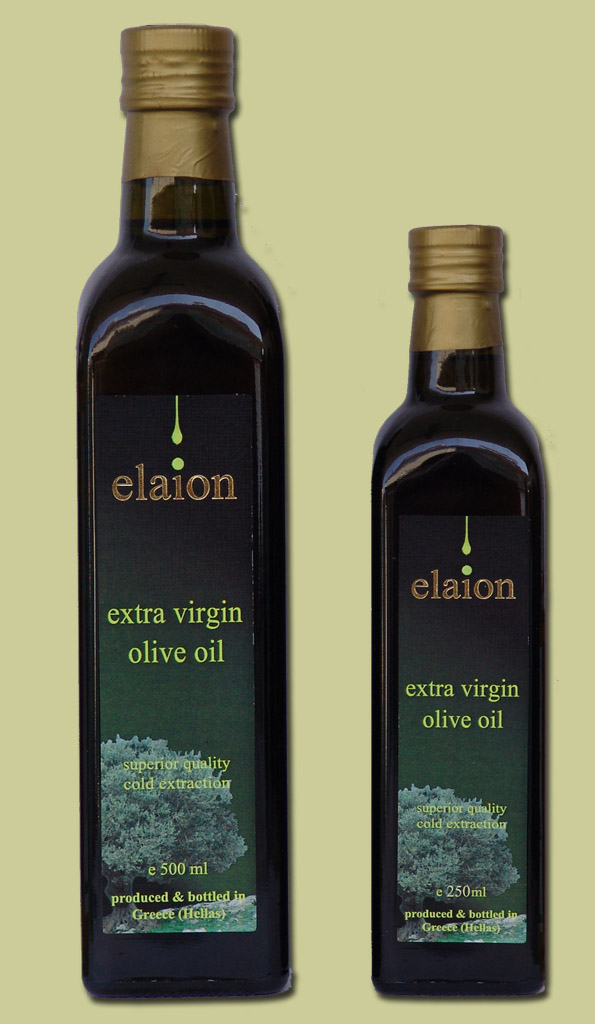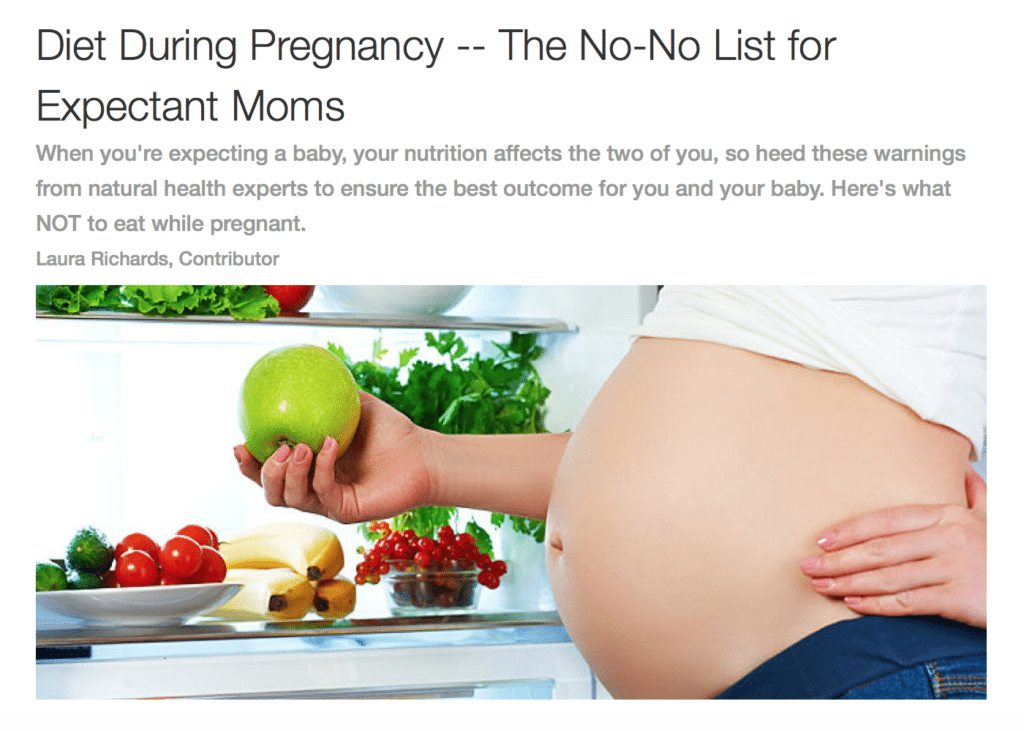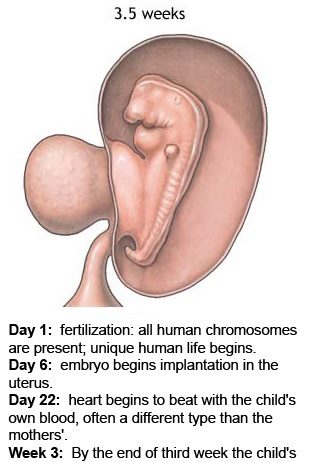Chamomile while pregnant
Is it Safe to Drink While Pregnant?
wellness
Chamomile Tea and Pregnancy: Is it Safe to Drink While Pregnant?
By Lindsay Champion
Published Sep 27, 2020
Before you got pregnant, you didn’t pay that much attention to nutrition labels. (Trans fat? What’s a trans fat?) But now that you’ve got a baby in tow, you don’t let anything near your body unless it’s been approved by your OB-GYN…or at least heavily Googled at 3 a.m.
One of the trickiest topics to maneuver? Herbal tea. Because the ingredients and strengths of herbal teas can vary depending on the manufacturer, and since there haven’t been many herbal tea studies conducted on pregnant women, there isn’t a lot of information out there about which herbal teas are safe to drink. But if you’re wondering whether or not it’s safe to keep drinking your nightly cup of chamomile, read on.
What Is Chamomile Tea, Anyway?
Chamomile tea is made by soaking dried chamomile flowers in hot water. The potency of the tea depends on the manufacturer and how long the tea is steeped. Chamomile contains flavonoids—naturally occurring plant pigments that are present in many nutritious fruits and veggies. Foods with flavonoids have a host of health benefits, including, according to promising research, the potential to reduce risk of heart disease, cancer and stroke.
Chamomile tea bags are sold at grocery stores, health food stores and drugstores across the country, and can also be purchased on Amazon. You can also make chamomile tea by soaking the dried flowers (also available online and at health food stores) directly in hot water.
Is Chamomile Tea Safe to Drink While Pregnant?
This is a tricky one. We polled several obstetricians, and the general consensus is that drinking chamomile tea is a personal decision you should make with your doctor. There is no hard-and-fast rule as to whether or not chamomile is definitely safe or definitely unsafe. Because there is so little research in regard to pregnant women and chamomile tea, it’s best to err on the side of caution.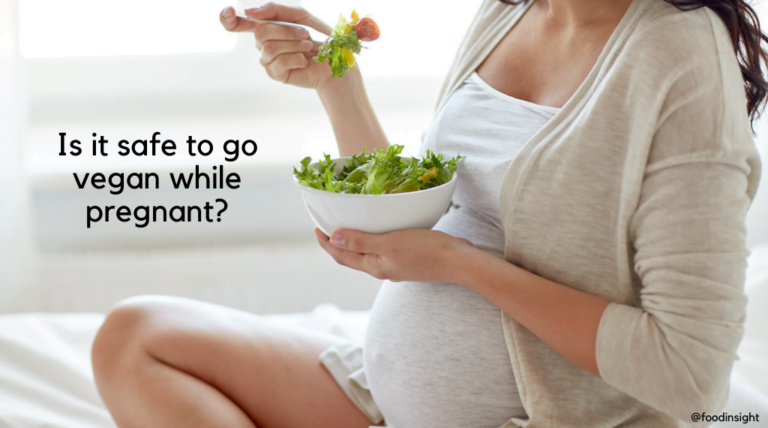
Could chamomile tea be safe for some pregnant women and not for others? It's a tough call, because research is so lacking. In a study conducted by doctors at Case Western Reserve University (including Sanjay Gupta), the benefits and risks of chamomile tea have been researched extensively amongst the general population. However, it is noted that safety in pregnant and nursing women “has not been established, although there have not been any credible reports of toxicity caused by this common beverage tea.”
Why the complete lack of evidence when it comes to moms-to-be? "Pregnant women are considered a vulnerable population, so, in general, researchers aren't permitted to experiment on pregnant women," Jacqueline Wolf, a professor of the history of medicine in the Department of Social Medicine at Ohio University, told NPR.
"Given the lack of evidence about its long-term safety, chamomile is not recommended for women who are pregnant or breastfeeding," WebMD reports. Hmm, fair enough. Unless you clear it with your doc, steering clear sounds like the best policy.
Unless you clear it with your doc, steering clear sounds like the best policy.
Health Benefits of Chamomile Tea
Pregnant or not, what’s so great about chamomile tea, anyway? Basically, it has antioxidant, anti-inflammatory and astringent properties—in fact, it’s been used as a popular medicinal herb for centuries, dating all the way back to ancient Egypt, Rome and Greece. According to the Case Western Reserve study, chamomile has been proven to help reduce symptoms of the common cold, gastrointestinal conditions and throat soreness and hoarseness. It’s also widely touted as a sleep aid (which is why your grandma probably tried to push chamomile tea on you as a kid when you were all riled up before bed).
Chamomile is also widely recommended as an effective home remedy to reduce anxiety. In a 2016 study published by the National Institutes of Health, subjects diagnosed with moderate-to-sever generalized anxiety disorder were given 1500mg of chamomile extract every day for 12 weeks. Chamomile was found to be safe and effective in significantly reducing GAD symptoms. While chamomile extract contains a much higher dose than your average cup of tea, you may also reap the anxiety reducing benefits by slowly sipping a warm cup and taking deep breaths.
Chamomile was found to be safe and effective in significantly reducing GAD symptoms. While chamomile extract contains a much higher dose than your average cup of tea, you may also reap the anxiety reducing benefits by slowly sipping a warm cup and taking deep breaths.
Risks of Chamomile Tea
While chamomile tea is largely considered safe (for the non-pregnant population, anyway), it can cause vomiting if you take it in large doses, warns WebMD. Additionally, if you have an allergy to any plant in the daisy family (like marigolds, ragweed and chrysanthemums), you may develop an allergic reaction after consuming chamomile tea. Chamomile may also interact with some medications, including ibuprofen and aspirin, so talk to your doctor before consuming the tea in large amounts.
Chamomile tea isn't regulated, so the amount of chamomile present in the cup of tea you're drinking will vary by the manufacturer If you're concerned about the dosage of chamomile you're taking, chamomile extract or capsules (which contain regulated doses) may be a better alternative.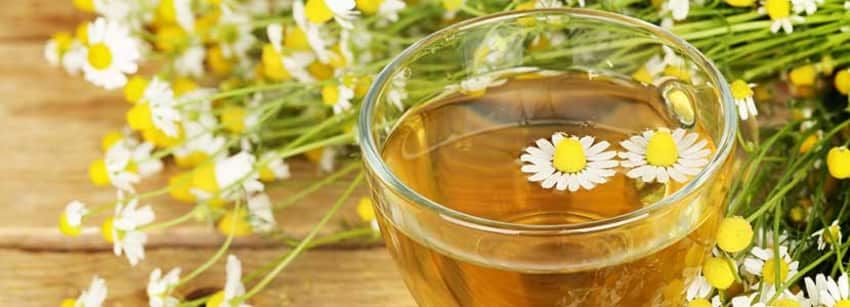
What Can I Drink Instead?
If you’d rather be safe than sorry, you may feel more comfortable ditching chamomile tea during your pregnancy. If so, there are plenty of other beverages you can try instead.
While hot water with lemon isn’t exactly a glamorous swap, it will keep you hydrated and satisfy your desire for a warm, soothing beverage to sip before bed. Best of all, it’s completely safe, you can drink as many cups as you want and you don’t have to clear it with your OB ahead of time. (Win, win, win.)
Black and green teas contain caffeine, and the American College of Obstetricians and Gynecologists maintains that 200 mg of caffeine per day is unlikely to cause harm to you or your unborn baby. (For reference, a cup of black tea has about 47 mg of caffeine.) Your doctor might have a different opinion, so check with him or her before incorporating caffeinated tea into your daily routine.
Like chamomile tea, the effects of herbal teas on pregnant women have not been significantly studied.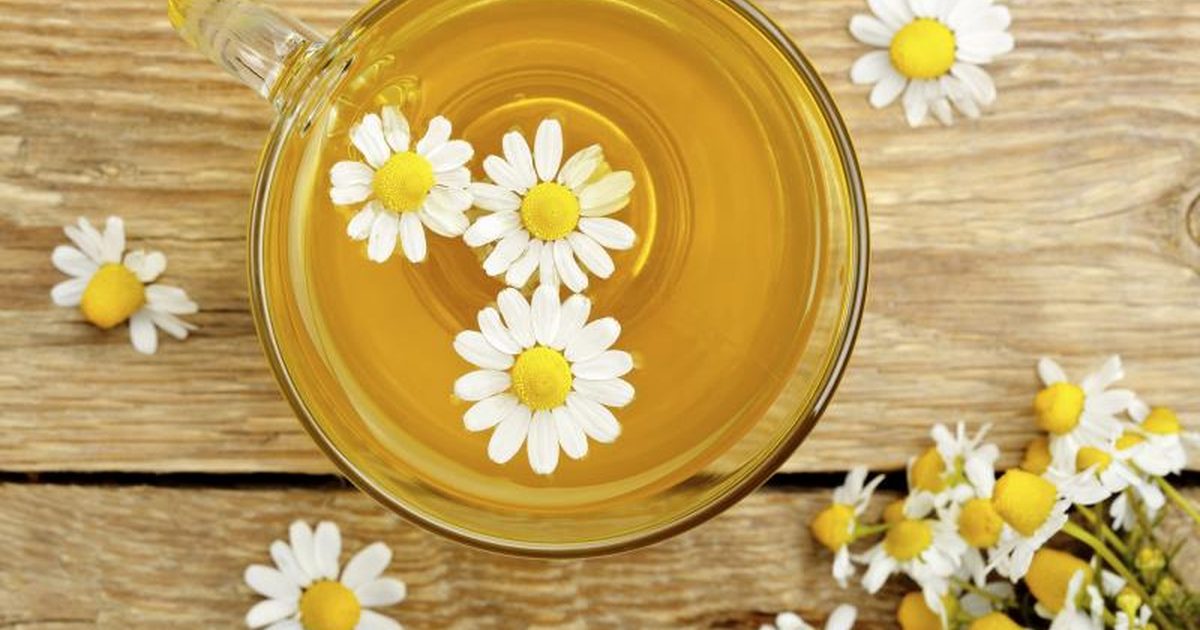 Fruit-based teas, like blackberry or peach tea, are likely safe, but check the ingredients to determine that the tea doesn’t contain a blend of herbs that could be dangerous during pregnancy. For instance, hibiscus is a common ingredient in many herbal teas, but it is not safe for pregnant women. Lemon balm tea is also generally considered safe according to the American Pregnancy Association, but check with your doctor before you try it.
Fruit-based teas, like blackberry or peach tea, are likely safe, but check the ingredients to determine that the tea doesn’t contain a blend of herbs that could be dangerous during pregnancy. For instance, hibiscus is a common ingredient in many herbal teas, but it is not safe for pregnant women. Lemon balm tea is also generally considered safe according to the American Pregnancy Association, but check with your doctor before you try it.
In the third trimester, raspberry red leaf tea is a popular choice among pregnant women all over the world. One-third of midwives in the United States recommend raspberry red leaf tea to stimulate labor, according to a recent study published by Integrative Medicine. Another study conducted by the Holistic Nurses Association in New South Wales found that women who drank the tea were 11 percent less likely than those who did not to require forceps during delivery. Even the American Pregnancy Association approves, suggesting that the tea can be safely consumed while pregnant and can both decrease the length of labor and reduce the chances of needing assisted delivery or a C-section. For some women, raspberry red leaf tea can trigger contractions, so get the go-ahead from your doctor or midwife before you drink it.
For some women, raspberry red leaf tea can trigger contractions, so get the go-ahead from your doctor or midwife before you drink it.
Is It Safe to Drink?
Chamomile Tea While Pregnant: Is It Safe to Drink?Medically reviewed by Debra Rose Wilson, Ph.D., MSN, R.N., IBCLC, AHN-BC, CHT — By Diana Wells on November 6, 2018
Walk through any grocery store and you’ll find a variety of teas for sale. But if you’re pregnant, not all teas are safe to drink.
Chamomile is a type of herbal tea. You might like to enjoy a soothing cup of chamomile tea on occasion. But some doctors recommend limiting your herbal tea consumption during pregnancy. Here’s a look at the health benefits and risks.
There are two main types of tea: herbal and non-herbal. Non-herbal teas are made from the leaves of tea plants. They contain caffeine. Even the decaffeinated forms contain some caffeine.
It’s generally recommended that pregnant and breastfeeding women stay away from, or at least limit, the amount of caffeine that they consume each day. This is because a developing baby can’t process caffeine in their system as well as an adult.
This is because a developing baby can’t process caffeine in their system as well as an adult.
This recommendation includes any kind of caffeine, and not only the caffeine in tea. There’s caffeine in foods and drinks including chocolate, coffee, and soda. If you consume more than one source of caffeine per day during your pregnancy, you’re increasing the amount of caffeine in your system.
Therefore, it’s important to be aware of all sources of caffeine.
The following categories include teas that are non-herbal and contain high amounts of caffeine:
- black
- green
- oolong
Green tea might be a good choice. Be aware of caffeine intake when pregnant and keep intake to a moderate amount.
What is herbal tea?
Herbal teas are made from various parts of plants. They are made from a plant’s roots, berries, and seeds. True herbal teas are naturally caffeine-free. Read the label to find out about any teas you aren’t sure of.
Not all herbal teas are considered safe for pregnant women by the U. S. Food and Drug Administration (FDA). This is mostly because of the types of herbs used and the amount of studies that the FDA has been able to conduct with pregnant women.
S. Food and Drug Administration (FDA). This is mostly because of the types of herbs used and the amount of studies that the FDA has been able to conduct with pregnant women.
Chamomile tea looks similar to and is related to the daisy. There is German or Roman chamomile. It has been used since the time of ancient Egypt. The one used most often is German chamomile.
For most people, drinking chamomile tea has health benefits. These include a dose of antioxidants, help with sleep, and anti-inflammatory properties.
Chamomile tea is known to have a calming effect and help prevent colds and other illnesses. Plus, drinking tea of any kind can help keep your body hydrated.
Still, many doctors use caution in relation to pregnant women drinking herbal teas, including chamomile. This is simply because there haven’t been enough studies conducted to ensure their safety.
Chamomile tea contains anti-inflammatory agents. These may be dangerous during pregnancy. It depends on your medical history, how much you consume, and other factors.
It’s important to remember that not all herbal teas are the same, and there are those that doctors tell their pregnant patients to stay away from.
As with anything in your diet during pregnancy, discuss drinking chamomile tea with your doctor. Some doctors may suggest limiting the amount you drink, while others may prefer that you not drink it at all.
You also want to be sure to use commercially prepared chamomile tea if you choose to drink it during your pregnancy. Herbal teas that are commercially processed use herbs from safe sources.
You may have heard that chamomile tea can induce labor. But there isn’t currently any medical evidence to support this.
There are some herbal teas that doctors warn against in early pregnancy. These include blue cohosh and black cohosh teas.
Some herbal teas are considered safer than others for pregnant women. Nettle tea is used in many herbal teas and is generally considered to be pregnancy-safe. While some midwives may advise drinking red raspberry leaf tea, there is no strong evidence of its benefits for pregnant women, and a 2019 study suggested it may have adverse effects on pregnancy outcomes.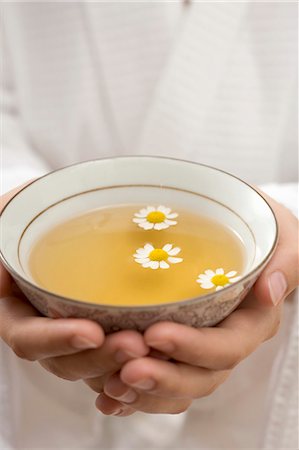
During pregnancy, you should stay away from any herbal teas that are marketed for weight loss or dieting, or those that can be used as laxatives. Also, don’t drink those that contain any type of nutritional supplement. This is because the supplements can cause complications or interactions with other medications.
Keep in mind that even herbal teas labeled as “pregnancy teas” haven’t had enough studies done on them to be considered completely safe during pregnancy. Ask your doctor before trying out new types of tea.
To date, there haven’t been enough studies conducted on herbal teas and pregnancy. That means the jury is still out on whether drinking chamomile tea during pregnancy is safe.
Always use caution and ask your doctor about drinking herbal teas. Many common teas might be a poor choice when pregnant. Your doctor can recommend pregnancy-safe beverages for you to stay hydrated for the next nine months.
Last medically reviewed on November 6, 2018
- Parenthood
- Pregnancy
- Pregnancy Health
How we vetted this article:
Healthline has strict sourcing guidelines and relies on peer-reviewed studies, academic research institutions, and medical associations. We avoid using tertiary references. You can learn more about how we ensure our content is accurate and current by reading our editorial policy.
We avoid using tertiary references. You can learn more about how we ensure our content is accurate and current by reading our editorial policy.
- American College of Obstetricians and Gynecologists. (2010). ACOG CommitteeOpinion No. 462: Moderate caffeine consumption during pregnancy. DOI:
10.1097/AOG.0b013e3181eeb2a1 - Balbontín YM, et al. (2019). Herbal medicinal product use during pregnancy and the postnatal period.
ncbi.nlm.nih.gov/pmc/articles/PMC6485309/ - Drinking herbal tea during your pregnancy. (2018).
americanpregnancy.org/pregnancy-health/herbal-tea/ - Kennedy DA, et al. (2016). Safety classification of herbal medicines used in pregnancy in a multinational study. DOI:
10.1186/s12906-016-1079-z - Lindblad AJ, et al. (2016). Ginger for nausea and vomiting of pregnancy.
cfp.ca/content/62/2/145 - Mayo Clinic Staff. (2017). Pregnancy nutrition: Foods to avoid during pregnancy.
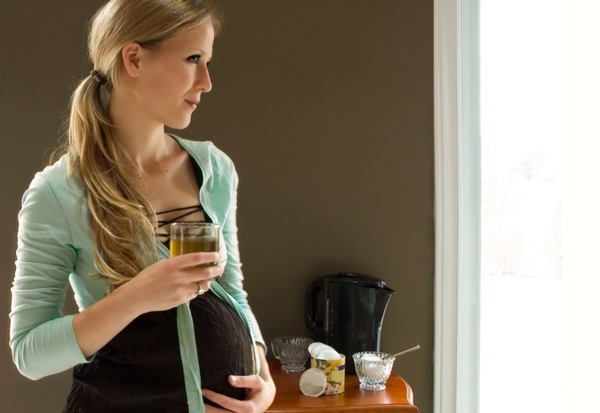
mayoclinic.org/healthy-lifestyle/pregnancy-week-by-week/in-depth/pregnancy-nutrition/art-20043844?pg=2 - Thomson M, et al. (2014). Effects of ginger for nausea and vomiting in early pregnancy: A meta-analysis.
jabfm.org/content/27/1/115.short - Viljoen E, et al. (2014). A systematic review and meta-analysis of the effect and safety of ginger in the treatment of pregnancy-associated nausea and vomiting. DOI:
10.1186/1475-2891-13-20
Our experts continually monitor the health and wellness space, and we update our articles when new information becomes available.
Current Version
Nov 6, 2018
By
Diana Wells
Edited By
Phil Riches
Medically Reviewed By
Debra Rose Wilson, PhD, MSN, RN, IBCLC, AHN-BC, CHT
Share this article
Medically reviewed by Debra Rose Wilson, Ph.D., MSN, R.N., IBCLC, AHN-BC, CHT — By Diana Wells on November 6, 2018
related stories
11 Things to Avoid During Pregnancy - What Not to Do
11 Foods and Beverages to Avoid During Pregnancy - What Not to Eat
Can I Drink Green Tea While Pregnant?
What Exercises Are Safe in the First Trimester?
The Second Trimester: Concerns and Tips
Read this next
11 Things to Avoid During Pregnancy - What Not to Do
Medically reviewed by Katie Mena, MD
You know you’re not supposed to drink alcohol or use drugs during pregnancy, but what else is off-limits? Here’s a list of 11 things not to do while…
READ MORE
11 Foods and Beverages to Avoid During Pregnancy - What Not to Eat
By Adda Bjarnadottir, MS, RDN (Ice)
Certain foods can be very harmful for pregnant women and their babies.
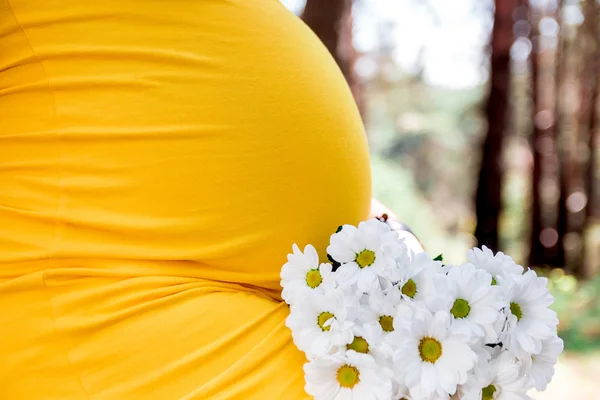 This is a list of 11 foods and drinks that pregnant women should avoid.
This is a list of 11 foods and drinks that pregnant women should avoid. READ MORE
Can I Drink Green Tea While Pregnant?
You know you should limit how much coffee you drink while pregnant, but what about green tea? Here’s what you need to know.
READ MORE
What Exercises Are Safe in the First Trimester?
Staying healthy and fit when you're pregnant is one of the best things you can do for yourself and your baby. Learn about some of the exercises you…
READ MORE
The Second Trimester: Concerns and Tips
Medically reviewed by Janine Kelbach, RNC-OB
Read tips to help you address some concerns you may have about the second trimester of pregnancy.
READ MORE
Food Safety During Pregnancy
Medically reviewed by Kimberly Dishman, MSN, WHNP-BC, RNC-OB
Some foods contain toxins that are harmful to pregnant women and their developing baby.
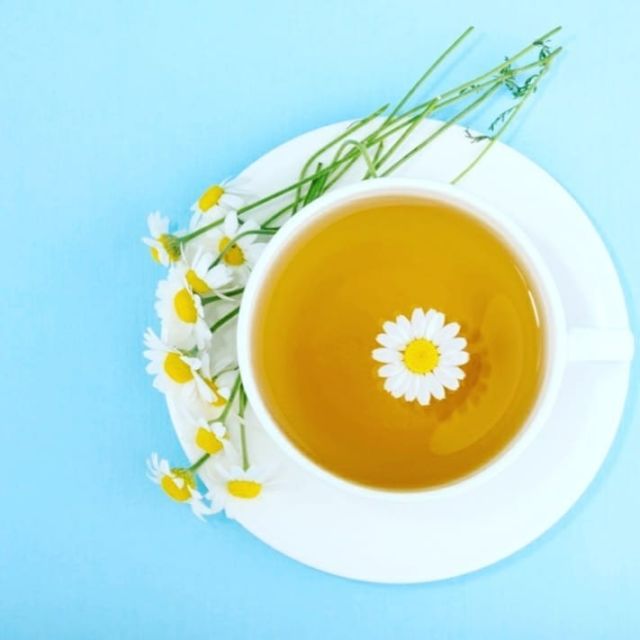 Read more about these toxins and how to avoid them.
Read more about these toxins and how to avoid them.READ MORE
Common Concerns During Pregnancy
Medically reviewed by Nicole Galan, RN
It's natural to have many questions and concerns about your pregnancy, especially if it's your first. Find answers and helpful tips here.
READ MORE
Pregnancy Recommendations Around the World
Medically reviewed by Steve Kim, MD
Pregnancy recommendations differ a lot depending on the country where you plan to give birth.
READ MORE
7 Books That Shine a Light on Pregnancy
For everything from what to eat during pregnancy to how to plan for birth and what comes after, check out these best pregnancy books!
READ MORE
Does Swaddling Increase the Risk of SIDS?
Medically reviewed by Mia Armstrong, MD
Is swaddling safe, or is it a risk factor for SIDS? Here's what the most recent research says.
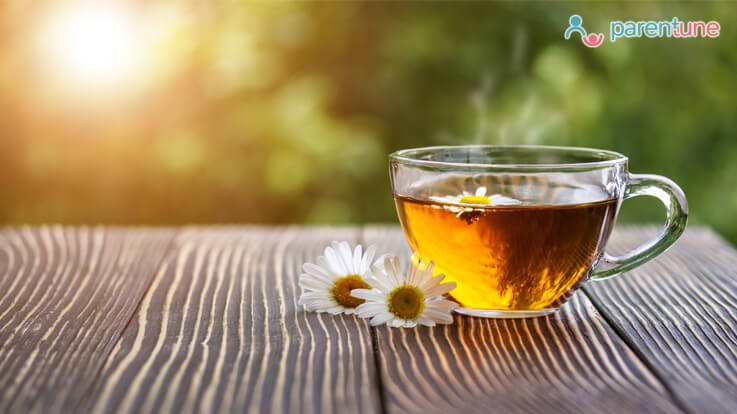
READ MORE
Obstetrician-gynecologist Nadezhda Averyanova spoke about the use of chamomile during pregnancy to expectant mothers
Obstetrician-gynecologist Nadezhda Averyanova spoke about the use of chamomile during pregnancy to expectant mothers
Obstetrician-gynecologist Nadezhda Averyanova spoke about the use of chamomile during pregnancy about the use of chamomile during pregnancy.
Many women during pregnancy treat any medication with great caution so as not to harm the health of the unborn child. However, there is an effective remedy that can replace most drugs - this is chamomile, familiar to all of us.
The beneficial properties of chamomile have been known for a long time, and even the doctors of ancient Rome and Greece began to use it as a remedy. Today it is the most popular plant that is so actively used by folk medicine. Chamomile is an ordinary flower that grows almost everywhere: in fields, gardens, cottages and yards. As a remedy, chamomile acts as a strong antiseptic, has a mild sedative, anti-inflammatory and carminative effect. In addition, the plant extract is added to many cosmetic preparations: creams, lotions, masks and soaps. In everyday life, we are used to sometimes turning to chamomile with various problems, be it stomach cramps or joint pain. Chamomile can be used by children and the elderly, internally and externally, as a prophylactic or as part of a complex therapy for a particular ailment.
As a remedy, chamomile acts as a strong antiseptic, has a mild sedative, anti-inflammatory and carminative effect. In addition, the plant extract is added to many cosmetic preparations: creams, lotions, masks and soaps. In everyday life, we are used to sometimes turning to chamomile with various problems, be it stomach cramps or joint pain. Chamomile can be used by children and the elderly, internally and externally, as a prophylactic or as part of a complex therapy for a particular ailment.
Largely due to its rich composition, chamomile is so valued by pregnant women, especially when the question of treatment is raised. However, you can’t overdo it either, along with the benefits of chamomile, it also has contraindications during pregnancy. Like any other drug, it is not recommended to take it without prior consultation with your doctor, especially during this crucial period of bearing a child.
Chamomile for pregnant women:
Before using this plant for medicinal purposes, pregnant women should be aware that topical use of chamomile, douching, baths and inhalations are absolutely safe for health.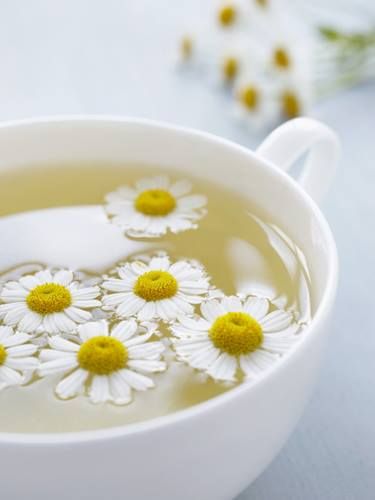 However, we must not forget that in large quantities, chamomile can activate the production of the hormone estrogen, which, if overdosed, even leads to premature birth or miscarriage. That is why it is so important to use chamomile infusions and decoctions strictly according to the prescription of a gynecologist.
However, we must not forget that in large quantities, chamomile can activate the production of the hormone estrogen, which, if overdosed, even leads to premature birth or miscarriage. That is why it is so important to use chamomile infusions and decoctions strictly according to the prescription of a gynecologist.
When used correctly, the plant is very useful in this crucial period of a woman's life, and if you are used to using cosmetics with this natural ingredient or sometimes treat yourself to a cup of chamomile tea, be calm, such a concentration of chamomile will only benefit.
This is how chamomile can be useful for pregnant women:
relieves stress and overexcitation, relaxes nerves, fights depression;
relieves stomach pain, headache and other pains;
fights flatulence and constipation, which so often plague expectant mothers;
chamomile tea suppresses the symptoms of toxicosis, nausea and vomiting;
heals skin wounds, acts as an antiseptic and bactericide;
chamomile tincture treats diseases of the oral cavity, such as stomatitis;
chamomile inhalations are done for inflammation of the upper respiratory tract;
fragrant decoctions are used for douching and baths;
chamomile significantly relieves pain in inflammation of the joints;
in addition, it is an additional source of magnesium and calcium.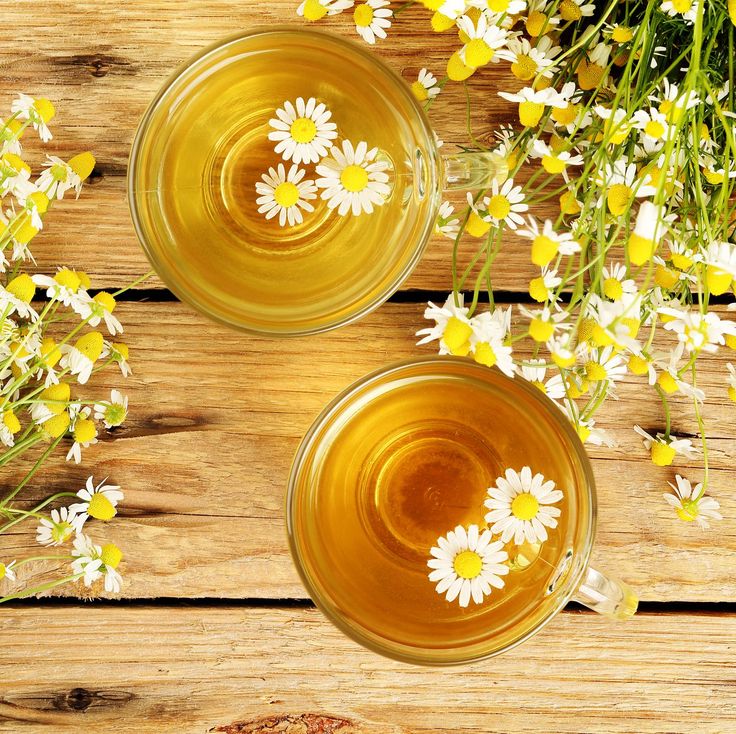
As mentioned above, an overdose of chamomile decoctions can harm the expectant mother, and in severe cases even lead to miscarriage.
Abuse of chamomile causes dizziness, so the maximum amount of this drink is two cups a day. It is better to use teas and decoctions every other day, as doctors advise.
Allergy sufferers should be wary of chamomile in their diet. Otherwise, an allergic reaction is manifested by a runny nose and a rash on the skin, and this, in turn, can be transmitted to the baby and increase its sensitivity to this plant several times.
Chamomile drink recipes for pregnant women:
Add 2 tsp to 1 cup of boiling water. dry pharmaceutical mixture flower. After infusing tea for 3 hours in a thermos, it can be consumed strained and chilled, 50 ml 3 times a day.
Approximately 20 g of dry herb should be poured into 0.5 l of water, then boiled for 5 minutes and infused for another 16 minutes. It is best to drink it hot, mixed with honey.
It is also quite easy to prepare an infusion from this field plant. For 1 cup of boiling water, prepare 4 tbsp. l. dry flowers.
Combine everything together in a separate bowl and boil for 30 minutes. After cooling, strain the broth and store it in the refrigerator for two days. You can take the medicine 50 g 3 times a day.
Chamomile for beauty
Due to the fact that the plant contains calcium and magnesium in large quantities, those who have certain problems with skin, hair and nail growth, and such problems often bother women during pregnancy, it is recommended to make herbal healing masks .
To prepare a hair mask, chamomile should be brewed in water (proportion 1:3) and infused in a container closed with a lid for about 3 hours. Rinse your hair with a decoction and, without rinsing with water, wrap the curls in a towel. Keep it on your head for about an hour, then wash everything off.
Face lotion is prepared according to the same technology: 3 tbsp.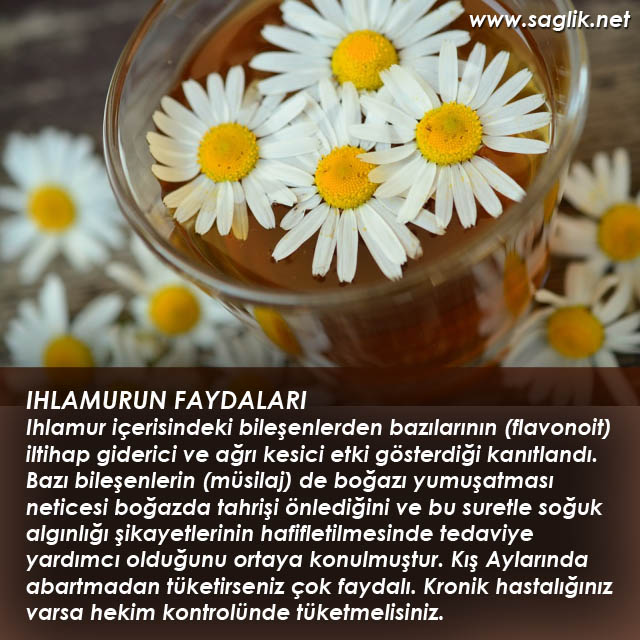 l. dried chamomile should be poured with 150 ml of boiling water. After that, wrap the hot container well and leave to infuse for 10 hours. After this time, the medicinal infusion is ready. It is recommended to moisten gauze and apply it to problem areas on the face.
l. dried chamomile should be poured with 150 ml of boiling water. After that, wrap the hot container well and leave to infuse for 10 hours. After this time, the medicinal infusion is ready. It is recommended to moisten gauze and apply it to problem areas on the face.
A healing bath will help strengthen your nails. Easy to prepare: 1 tbsp. l. Pour chamomile into a glass of boiling water and let the liquid brew for 30 minutes. Dilute this infusion with water, and then dip your fingers into it for 20 minutes.
Advice before use
Expectant mothers who flatly refuse to take any pharmacological agents during pregnancy and prefer green pharmacy preparations should know that chamomile is not a panacea, and in case of an overdose, it can have an extremely negative impact on the health of the baby .
External use of this herb is harmless, you just need to know for sure if you are allergic to this plant. To do this, a swab dipped in a decoction must be applied to the elbow bend. If after a day red spots or a rash do not appear on the skin, then you can use natural cosmetics based on chamomile.
If after a day red spots or a rash do not appear on the skin, then you can use natural cosmetics based on chamomile.
Herbal baths will also not bring much harm to the baby, the same applies to various compresses and douches. In the first trimester of pregnancy, chamomile saves from inflammation of the external genital organs, while other pharmaceutical preparations will be contraindicated.
For internal use, caution is advised for pregnant women. It is important to reasonably calculate your daily allowance and remember that if used incorrectly, chamomile can harm.
When buying pharmacy chamomile, you should always pay attention to how it is packaged and what its composition is. In addition to the flowers of this plant, nothing else should be in the box.
Always listen and trust the advice of experienced doctors, carefully read the instructions for use and do not overdo it with the use of chamomile. Remember, any drug and any plant can both heal and cripple.
Chamomile during pregnancy: is it possible to drink chamomile during the 1st, 2nd, 3rd trimester of pregnancy (in the early stages)? | Society
Summary:
- Is it possible to drink chamomile during pregnancy
- Chamomile tea during pregnancy - how it will help
- Chamomile seeds - are they safe during pregnancy? What doses are safe for pregnant women? During this period, it is mainly used as a prophylaxis for the symptoms of toxicosis. It can be used as an infusion to soothe, for example, stomach pains or morning sickness, or as a bath additive to reduce leg swelling.
Is it safe to drink chamomile during pregnancy
According to the American Pregnancy Association, the use of chamomile during pregnancy is safe, but it should be remembered that studies have not yet been conducted that would unambiguously rule out the negative effects of taking herbal infusions. To date, it has been precisely found that it does not have a teratogenic effect on the fetus.
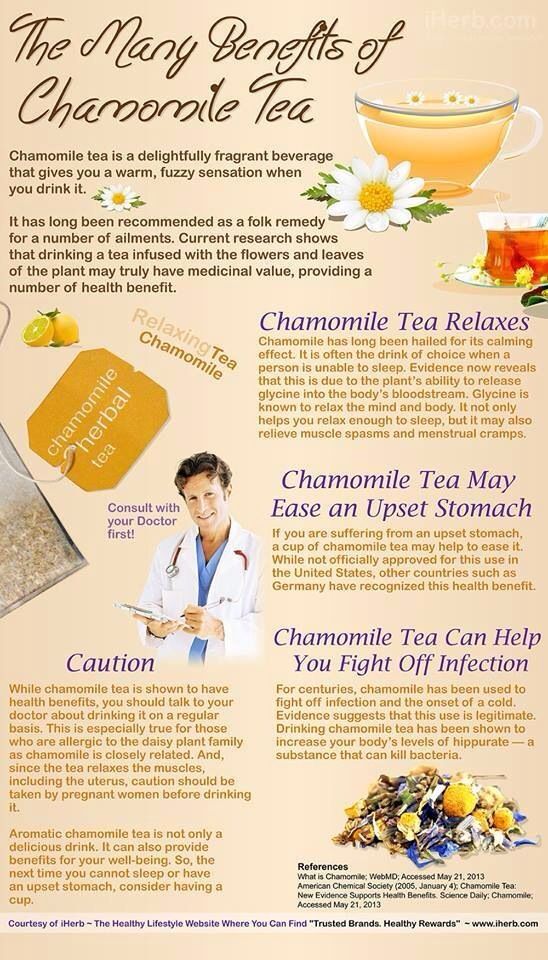
However, you should take care of your body, especially if you use herbs regularly. In case of occurrence of alarming symptoms, it is necessary to consult a doctor leading the pregnancy.
All herbs contain many different substances that, in addition to their medicinal properties, can cause serious harm. Individual elements in chamomile can provoke allergies, as well as uterine contractions. Sensitivity to certain substances during the period of bearing a baby may be higher, especially in women who did not have the habit of using herbal infusions and teas before pregnancy.
Plants that you take in the form of infusions and teas should not be considered as the basis of a pregnant diet, but only as a supplement to it. This means that herbal remedies should be used in very limited quantities and only with the permission of a doctor.
Chamomile tea during pregnancy - how it will help
An invaluable benefit of chamomile, which can be used by all pregnant women, especially at the beginning of the first trimester, is the relief of morning sickness.
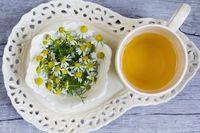 To enhance the effect, add ginger root to tea or infusion. In addition, it improves the functioning of the digestive system, helps eliminate flatulence, soothes heartburn, and also has a hypnotic and sedative effect, because it contains magnesium. All this makes it a good remedy in stressful situations, because chamomile helps to reduce muscle tension and calms.
To enhance the effect, add ginger root to tea or infusion. In addition, it improves the functioning of the digestive system, helps eliminate flatulence, soothes heartburn, and also has a hypnotic and sedative effect, because it contains magnesium. All this makes it a good remedy in stressful situations, because chamomile helps to reduce muscle tension and calms. It can be used as a substitute for painkillers, for example for migraines and headaches. In addition, it stimulates the activity of the body's immune system.
Chamomile ointments are an effective solution for sore and hypersensitive nipples that are swollen due to hormonal changes. Since chamomile contains calcium and magnesium, it also has a soothing effect on arthritis. In turn, its antihistamine properties make it an effective remedy for allergies of various origins. The plant not only prevents it, but also mitigates its consequences.
Not all herbs are recommended during pregnancy, but chamomile is among the herbs that are highly recommended.
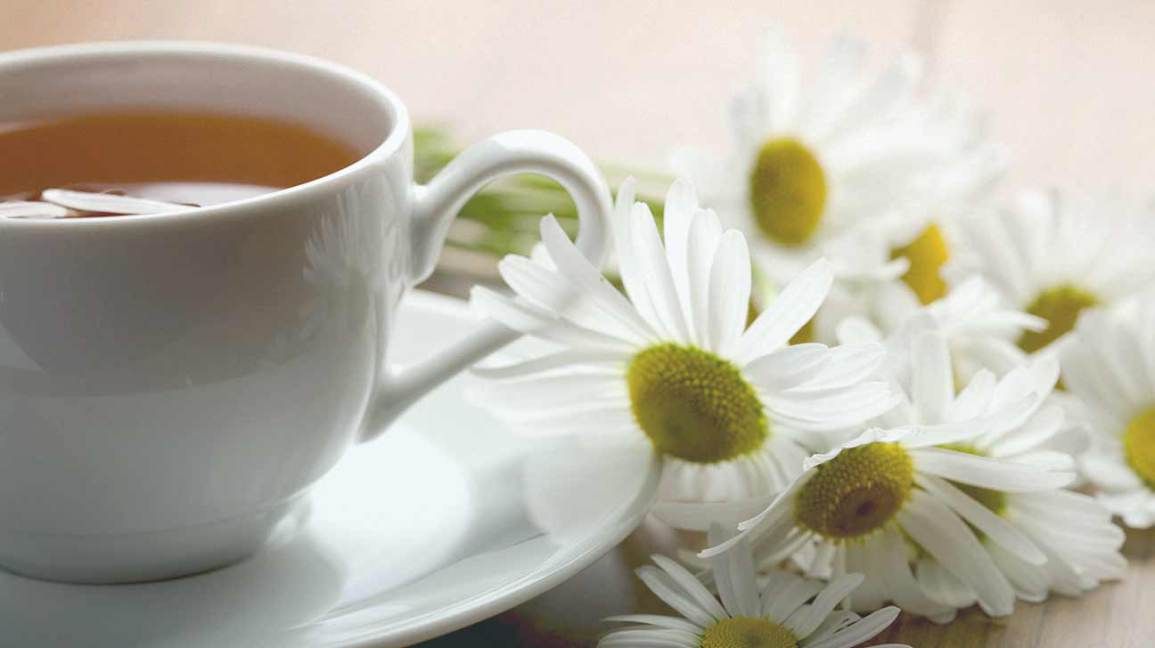 It has a high content of trace elements, vitamins and other active substances.
It has a high content of trace elements, vitamins and other active substances. Chamomile seeds - are they safe during pregnancy?
Chamomile seeds are extremely safe for expectant mothers, especially as they help soothe ailments common to pregnant women: cystitis, uterine cramps (involuntary, excessive muscle contractions) and genital tract infections. Inflammation of the genital tract threatens not only the health of the mother, but also the unborn child.
Chamomile, used in seeds, has anti-inflammatory and antibacterial properties. An infusion of the seeds can be used as a mouthwash or as an addition to relaxing baths. It eliminates puffiness and soothes irritated conjunctiva of the eyes.
Pregnant women often experience excessive facial skin sensitivity, which means that they should not use creams that did not cause discomfort before pregnancy. The solution can be natural cosmetics based on chamomile extract, which improves skin condition.

Thanks to these products, the skin becomes smoother and more hydrated. Chamomile herb is a good solution for acne prone skin due to its antibacterial, anti-inflammatory and antioxidant properties. Moreover, conventional acne medications cannot be used by pregnant women due to the possibility of negative effects on the fetus.
Chamomile also has a nourishing effect on hair, especially on blond hair, restores color and gives them a healthy shine. It also helps fight oily scalp and dandruff.
What doses are safe for pregnant women? How much to drink infusions and decoctions?
Chamomile infusions can be taken up to 3 times a day as a preventive measure. Means based on it should in no case harm the mother's body. As for the dosage of herbs, use ready-made filter bags for convenience or follow the rule - 1-2 teaspoons of chamomile per glass of water. It should be remembered that excessive consumption of chamomile can have negative consequences, so pregnant women should not use it on their own without consulting a doctor.

